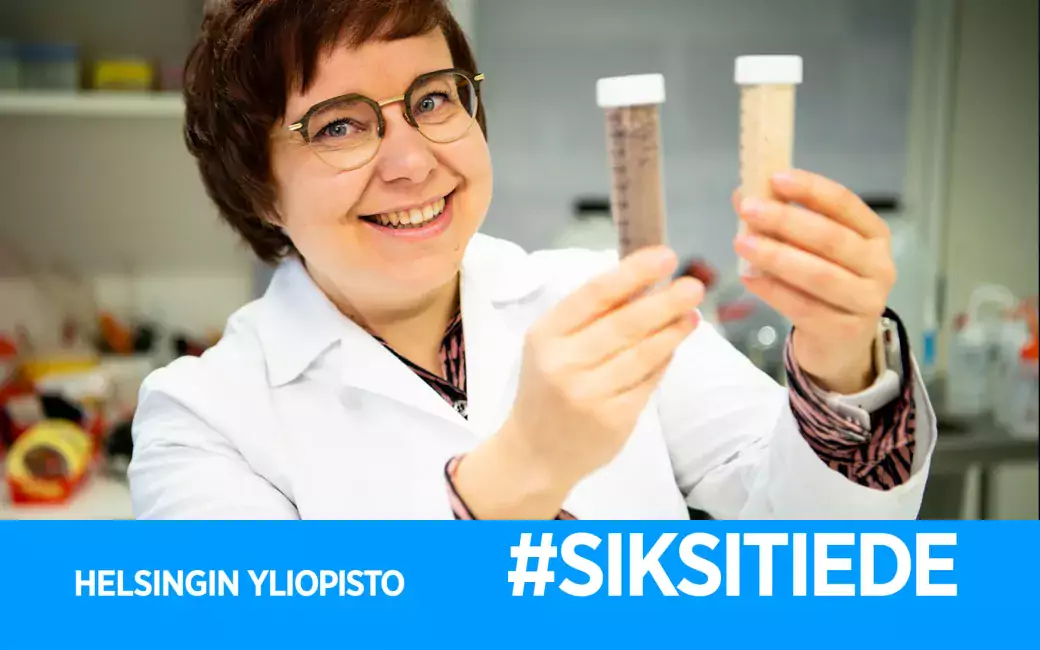A bio-based pad can extend the shelf life of vegetables. This is one example of research-based inventions that help solve challenges related to food security and sustainability.

How can the shelf life of vegetables be extended on their journey from farm to fork? Usually, the key elements are refrigeration and packaging that prevents evaporation. In shops, however, most vegetables are displayed at room temperature. They are sold as loose goods or in open packages, which do little to prevent their rapid expiry.
This is a problem, as the food waste generated by unsaleable vegetables reduces food security and the sufficiency of food, strains the environment and wastes resources used in food production.
Associate Professor Kirsi Mikkonen and her colleagues have developed a solution based on research that slows the ripening, microbial spoilage and the browning of vegetable products.
"The FreshTech (website in Finnish only) solution is based on an inexpensive bio-based pad that functions as part of the packaging, keeping the product fresh, acting as a padding and absorbing moisture. In the future, our technical solution can be combined with other types of packaging, such as plastic. It can form part of the packaging material or, with for instance paper board packaging, a coating," says Mikkonen, who works at the University of Helsinki.
Although packaging itself strains the environment, this load will be considerably smaller compared to food waste generated without packaging.
An innovation with origins in basic research
Persevering research is what allowed FreshTech to progress to this stage. Mikkonen emphasises that, without comprehensive basic expertise gained over the decades, the entire FreshTech idea would not have come about in the first place, nor would it have been possible to develop it further.
"We have combined materials research with research on the development of packaging materials and the utilisation of sidestreams in the food industry. Also involved are colleagues who have for a long time been studying lipids, their oxidation products and volatile compounds," says Mikkonen, who hails from the Faculty of Agriculture and Forestry.
After clarifying their ideas on FreshTech's application potential, the researchers began advancing it towards commercialisation with the help of Helsinki Innovation Services Ltd. At first, an invention and idea disclosure and a patent application were submitted. Research to Business funding was obtained from Business Finland for the development efforts. At the moment, the work is being carried out with the help of funding from the Finnish Development Fund of Agriculture and Forestry.
"For the time being, we are keeping all commercialisation routes open. Later on, we can establish a business or license our invention to someone else," Kirsi Mikkonen notes.
At the moment, the solution is being tested on fresh berries and adapted to industrial-scale production. Mikkonen's goal is to make the product primarily available for the early stages of the vegetable production chain and for shop use, but modification for home use too is possible.
Vegetarian patties of the future from mycelia?
Innovations resulting from research are building new bridges between science and everyday applications. In addition, they are lowering the threshold for the development of further innovations.
Kirsi Mikkonen and her colleagues are also working on another innovation originating in basic research: the cultivation of the mycelia of edible fungi for nutritional use. In traditional fungiculture, the growth of fruit bodies above ground precedes harvesting.
"Mycoproteins are of a high quality, and mycelia produce food quickly. The cultivation of mycelia is also energy-efficient, as they grow in the dark and at room temperature. In addition, we can utilise agricultural sidestreams in liquid-based cultivation," says Mikkonen, head of the MyShroom project in the early stages of the commercialisation path.






